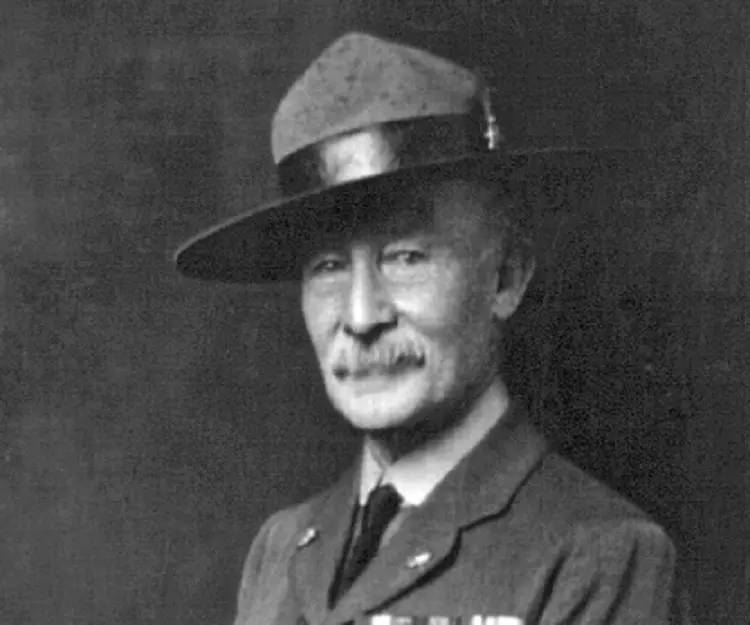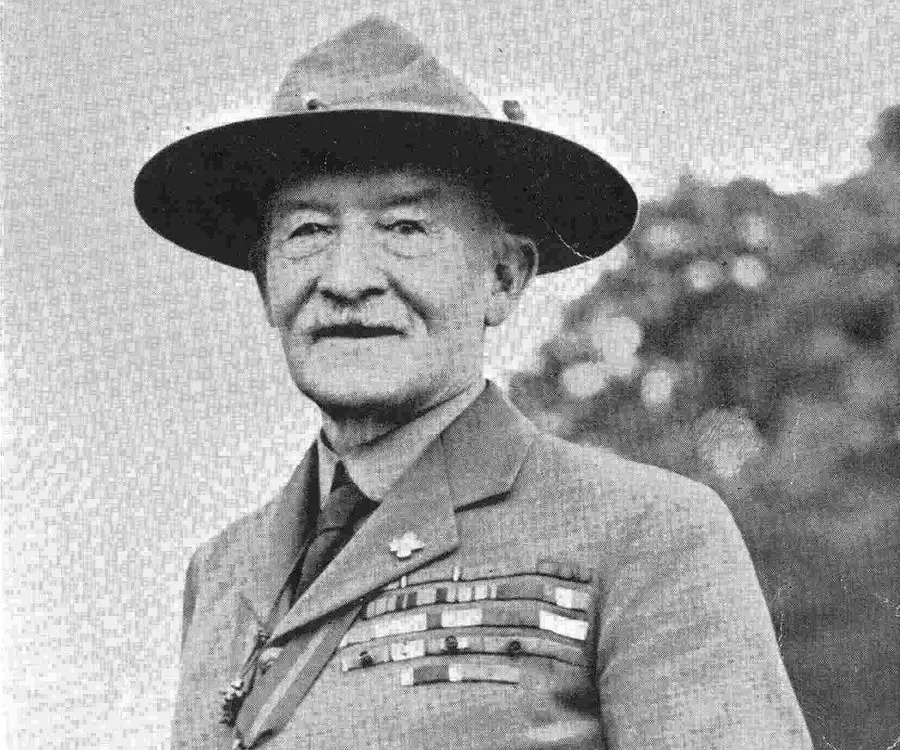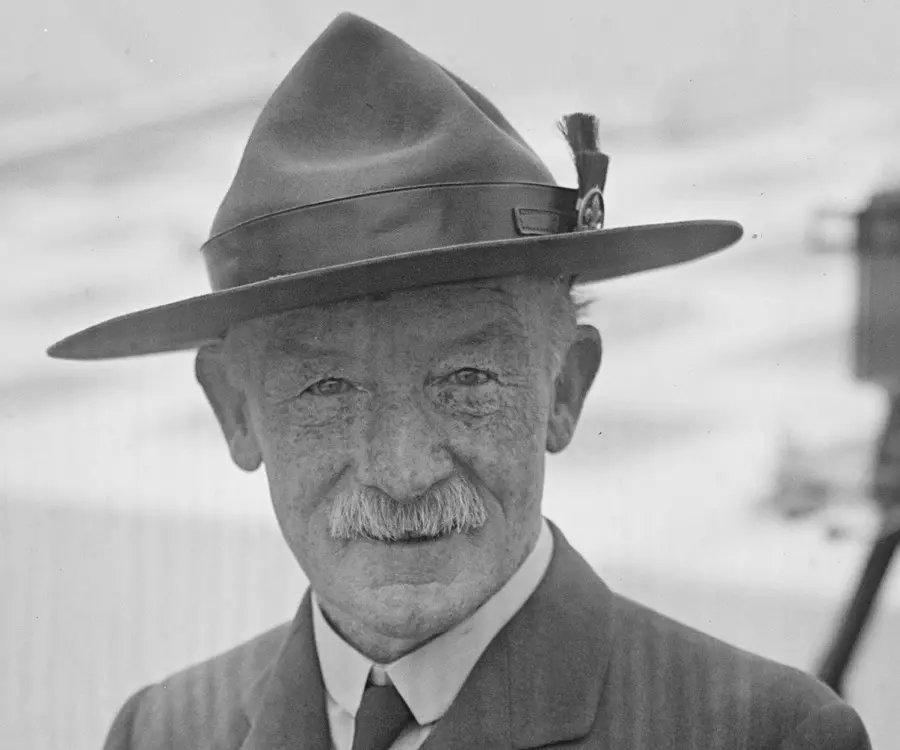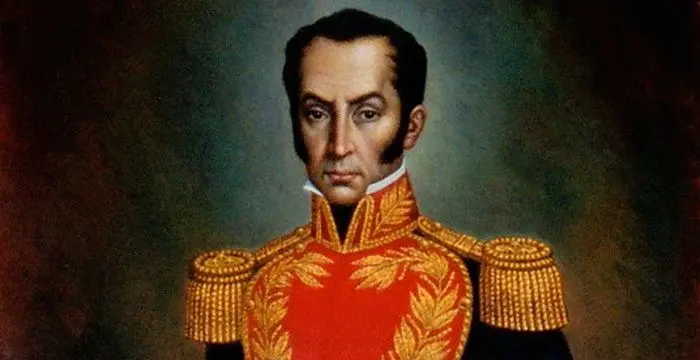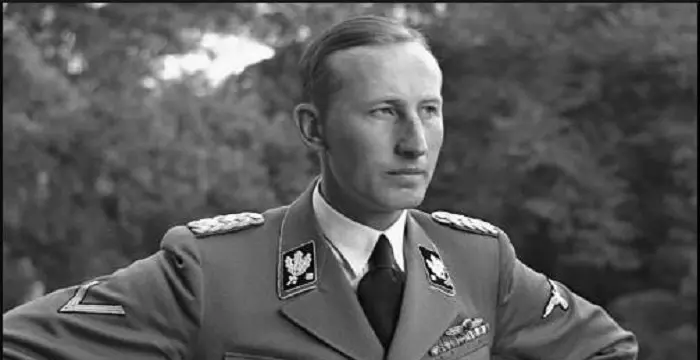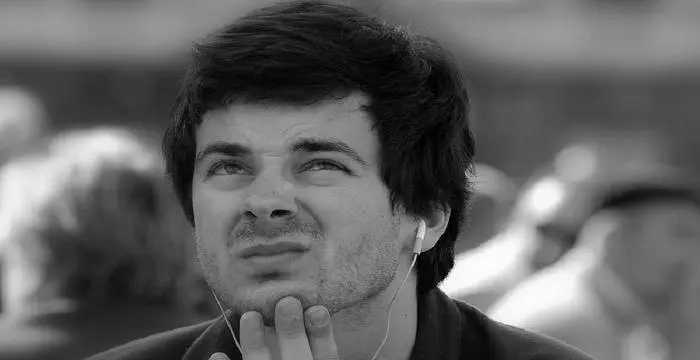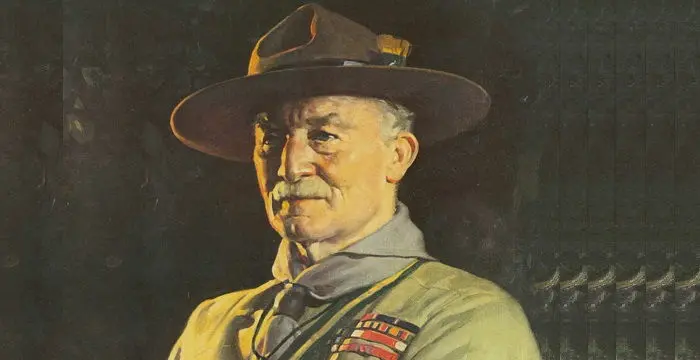
Robert Baden-Powell, 1st Baron Baden-Powell - Founder of the Scout Movement, Career and Personal Life
Robert Baden-Powell, 1st Baron Baden-Powell's Personal Details
Lord Baden Powell was the founder of the Scout Movement
| Information | Detail |
|---|---|
| Birthday | February 22, 1857 |
| Died on | January 8, 1941 |
| Nationality | British |
| Famous | Leaders, Military Leaders, Founder of the Scout Movement |
| Hobbies | Tennis Croquet, Music, Horseback Riding, Boating, Skating |
| Spouses | Olave Baden-Powell |
| Siblings | Agnes Baden-Powell, Augustus Baden-Powell, Baden Baden-Powell, Francis Baden-Powell, George Baden-Powell, Warington Baden-Powell |
| Known as | Robert Baden-Powell, Robert Stephenson Smyth Baden-Powell, 1st Baron Baden-Powell, Robert Stephenson Smyth Baden-Powell Baden-Powell of Gilwell |
| Childrens | 2nd Baron Baden-Powell, Betty Clay, Heather Grace Baden-Powell, Peter Baden-Powell |
| Universities |
|
| Founder / Co-Founder |
|
| Birth Place | Paddington |
| Religion | Anglicanism |
| Gender | Male |
| Father | Baden Powell |
| Mother | Henrietta Grace Smyth |
| Sun Sign | Pisces |
| Born in | Paddington |
| Famous as | Founder of the Scout Movement |
| Died at Age | 83 |
Robert Baden-Powell, 1st Baron Baden-Powell's photo
Who is Robert Baden-Powell, 1st Baron Baden-Powell?
Lord Baden Powell, born as Robert Stephenson Smyth Powell, is known all over the world as the founder of Boys Scout and Girl Guide movements. However, not many are aware of the fact that he was also a successful military leader, an author and an artist. During his thirty four years of military service, he won many wars and was felicitated a number of times for his courageous and innovative military techniques. During the Siege of Mafeking, he misguided the Boers by planting fake minefields. At his instructions, his soldiers, while moving from one trench to another, pretended to avoid barbed wires that did really exist. These types of techniques helped him to hold out till the reinforcement arrived. When he went back to England, King Edward VII personally invested him with the Companion of the Order of the Bath. He was later given Peerage by King George V and began to be known as the 1st Baron Baden Powel. While in service, Baden Powel also wrote many training manuals, which later helped him to start the Boys Scout and Girl Guides movements. Today, the movement has spread to 216 countries with over 38 million members.
// Famous Leaders
Edi Rama
Edi Rama is the current Prime Minister of Albania. Check out this biography to know about his childhood, life, achievements, works & timeline.
Tecumseh
Tecumseh was a Native American leader of the Shawnee clan. This biography profiles his childhood, life and timeline.
Khalifa bin Zayed Al Nahyan
Sheikh Khalifa bin Zayed Al Nahyan is the current President of the United Arab Emirates (UAE). Check out this biography to know about his birthday, childhood, family life, achievements and fun facts about him.
Childhood & Early Life
Robert Stephenson Smyth Powel was born on February 22, 1857, in Paddington locality in central London. He was named after his godfather Robert Stephenson, a well known railway engineer and was popularly referred as Stephe.
His father, Baden Powel, was a famed mathematician, a priest and a prominent theologian. His mother, Henrietta Grace Baden Powel nee Smyth, was Baden Powel’s third wife. The couple had ten children, out of which Robert was the eighth. Baden Powel also had four children from his second wife.
Baden Powel died when Stephe was only three years old. To distinguish his children from their step siblings and to make sure that they inherit their father’s legacy, Henrietta changed their surname to Baden Powel. Henceforth, Stephe began to be known as Robert Stephenson Smyth Baden Powel.
Young Stephe was a sensitive child and often liked to play with dolls. His mother took him out for long walks, introducing him to the plant and animal world around him. Thus, the nature had always been a part of his upbringing.
Stephe started his education at Dame’s School in Kensington. In 1868, he joined Rose Hill School at Tunbridge Well in Kent. Two years later he went to Charterhouse School in Surrey and passed out from there. Here too he often sneaked into the forest nearby bypassing his teachers’ eyes.
On passing out from school, he was denied admission to Balliol College. So, he decided to sit for the Army Commission examination, which was open to all. He wrestled the second position in the cavalry and the fourth position in infantry. He opted for cavalry.
Career
Baden Powel joined the 13th Hussar as a lieutenant on December 6, 1876. The regiment was then stationed in India. He worked hard and within six years became a captain. However, he did not have to face any major conflict during his stint in India.
The 13th Hussar returned to England in 1884. During his stay in England, Baden Powel was required to travel to Germany, Austria and Russia to gather intelligence inputs and learn about their military development. He also published a book called ‘Reconnaissance and Scouting’ during this period.
In 1887, his maternal uncle General Henry Smyth was appointed as the Governor and Commander in Chief in South Africa. Baden Powel was deputed to serve under him. Here he was engaged in some non combating missions with the Zulus. Very soon he became a Brevet Major and was mentioned in the Dispatches.
In 1889, General Smyth became the Governor of Malta and Baden Powel served as his Military Secretary and Aide-de-camp for three years. During this period, he also served as an intelligence officer for the Director of Military Intelligence.
It is said that he traveled to different places in the guise of a butterfly collector. He then incorporated the information in the sketches of the butterflies he purportedly went to collect. Powel resigned from the post mainly because the position was noncombatant. He then went back to his regiment.
In 1896, Baden Powel was assigned to Matabeleland as Chief of Staff to Gen. Carrington. Here he got a chance to command reconnaissance missions into the enemy territories. Later he wrote down his experiences in a book call ‘The Matabele Campaign’.
He also met Frederick Russell Burnham, the famous American scout, during this campaign. Burnham introduced Baden Powel to the art of woodcraft. While organizing the boys scout movement in later years, Baden Powel drew on these experiences.
However, his experiences in this campaign had not been all that rosy. He was accused of illegally executing Matabele chief Uwini, but was later cleared by a military enquiry. It was also said that he allowed native soldiers under him to massacre the enemy, but nothing substantial was found against him.
In 1897, Baden Powel took part in the Fourth Ashanti War in the Gold Coast as the commander of his troop. He was only 29 years old then. Pemphre, the King of Ashanti had broken a treaty with the British. He resolved the issue without bloodshed, in recognition of which he was made a Brevet Lieutenant Colonel.
Baden Powel was next given the command of the 5th Dragoon Guards, then stationed in India. His ‘Aid to Scouting’ is based on the lectures he gave on the subject of military scouting during this period. It later became a best-seller and was used extensively by teachers and youth organizations while organizing outdoor camps.
In 1899, he was sent back to Africa to take part in the impending war between the English and the Boers over mineral rights. The war, known as the Second Boer War, was one of the most significant events in the life of Baden Powel.
As the war set in, Baden Powel was sent to Mafeking, a railway junction on the border of Transvaal. He was told to maintain a mobile force at the Boer border and to create a diversion in case something goes wrong in the south, where the fighting was going on.
To assist the regular army, Baden Powel raised local troops consisting of 1200 men. When the Boers came to know about this, they attacked the town. When the British Army repelled the attack, they decided to put on seize and starve the enemy out.
The Siege of Mafeking, which started on 13th October 1899, lasted for 217 days. The number of men surrounding the town at times exceeded 8000. It was mainly due to Baden Powel’s well thought of strategies that helped them to hold out till the reinforcements arrived.
The Siege of Mafeking was finally lifted on 19th May, 1900. In recognition of his unparalleled services, he was promoted to the post of Major General. He also became a national hero.
In October 1901, Baden Powel went back to England. There he was invited by King Edward VII, who was at that time residing at the Balmoral Castle. There, Baden Powel was invested with the Companion of the Order of the Bath, which is a British order of chivalry.
Baden Powel next returned to South Africa and organized the South African Constabulary. It was a paramilitary force raised during the war. He was the first Inspector General of the force.
In 1903, he returned to England to take up the post of inspector General of Cavalry and brought about important improvement in the reconnaissance training of the force. At the same time, he started taking interest in Boys Brigade. In 1907, Baden Powel became the Commander of the Northumbrian Division of the Territorial Force. This was his last military posting. He retired from the army in 1910 to promote the Boys Scout Movement.
Major Works
Although Baden Powel fought many wars he is best remembered for organizing the Boys Scout and the Girl Guide movements. He started taking active interest in them even while he was in the military service.
In 1907, he organized his first scout camp on Brownsea Island with only twenty boys. Quickly, the movement spread across the country. Children began to organize scout troops on their own.
In 1909, he first held a scout rally in the Crystal Palace in London. There he found many of the participants were actually girls. The next year he, along with his sister Agnes Baden Powel, organized the Girl Guide Movement. Today, these two movements have millions of members from all over the world.
His two books on scouting, ‘Aids to Scouting’ and ‘Scouting for Boys’ remained on the best sellers’ list for many years. Other than these two, Baden Powel found time to write around thirty other books on different subjects.
Awards & Achievements
Baden Powel received multiple awards for his military services. In 1896, he received the British South Africa Company Medal for the Matabele Campaign. He also received Queen's South Africa Medal in 1899 and the King's South Africa Medal in 1902.
Baden Powel was nominated for Nobel Prize for couple of times, but failed to win. However, he won Wateler Peace Prize in 1937.
He was also given Peerage by King George V in 1929. He took the title of Lord Baden-Powell of Gilwell. Incidentally, Gilwell Park was the international training centre established by him for Scout leaders.
Personal Life & Legacy
Baden Powel married Olave St Clair Soames on October 30, 1912 in a private ceremony. At that time he was 55 years old while she was 23. The couple had three children; Arthur Robert Peter Baden-Powell, Heather Grace Baden-Powell and Betty St. Clair Baden-Powel. However, researchers are the opinion that Baden Powel was a closet homosexual.
Baden Powel spent his last years in Kenya. He had a cottage in Nyeri, near Mount Kenya. He died there on January 8, 1941 and was buried S. Peter’s Cemetery, Nyeri. A circle with a dot at the middle has been engraved on his tomb stone. It is the scouting sign for going home.
// Famous Military Leaders
Sitting Bull
Sitting Bull was a Teton Dakota Indian chief who led Sioux tribes in their struggle for survival on the North American Great Plains.
Simon Bolivar
Simón Bolívar was a Venezuelan military leader who was instrumental in independence of several Latin American countries from the Spanish rule. This biography profiles his childhood, life, achievements and timeline.
Reinhard Heydrich
Reinhard Heydrich was a high-ranking German Nazi official during the World War II. Check out this biography to know about his childhood, family life, achievements and other facts about his life.
Robert Baden-Powell, 1st Baron Baden-Powell biography timelines
- // 22nd Feb 1857Robert Stephenson Smyth Powel was born on February 22, 1857, in Paddington locality in central London. He was named after his godfather Robert Stephenson, a well known railway engineer and was popularly referred as Stephe.
- // 1868Stephe started his education at Dame’s School in Kensington. In 1868, he joined Rose Hill School at Tunbridge Well in Kent. Two years later he went to Charterhouse School in Surrey and passed out from there. Here too he often sneaked into the forest nearby bypassing his teachers’ eyes.
- // 6th Dec 1876Baden Powel joined the 13th Hussar as a lieutenant on December 6, 1876. The regiment was then stationed in India. He worked hard and within six years became a captain. However, he did not have to face any major conflict during his stint in India.
- // 1884The 13th Hussar returned to England in 1884. During his stay in England, Baden Powel was required to travel to Germany, Austria and Russia to gather intelligence inputs and learn about their military development. He also published a book called ‘Reconnaissance and Scouting’ during this period.
- // 1887In 1887, his maternal uncle General Henry Smyth was appointed as the Governor and Commander in Chief in South Africa. Baden Powel was deputed to serve under him. Here he was engaged in some non combating missions with the Zulus. Very soon he became a Brevet Major and was mentioned in the Dispatches.
- // 1889In 1889, General Smyth became the Governor of Malta and Baden Powel served as his Military Secretary and Aide-de-camp for three years. During this period, he also served as an intelligence officer for the Director of Military Intelligence.
- // 1896In 1896, Baden Powel was assigned to Matabeleland as Chief of Staff to Gen. Carrington. Here he got a chance to command reconnaissance missions into the enemy territories. Later he wrote down his experiences in a book call ‘The Matabele Campaign’.
- // 1896 To 1902Baden Powel received multiple awards for his military services. In 1896, he received the British South Africa Company Medal for the Matabele Campaign. He also received Queen's South Africa Medal in 1899 and the King's South Africa Medal in 1902.
- // 1897In 1897, Baden Powel took part in the Fourth Ashanti War in the Gold Coast as the commander of his troop. He was only 29 years old then. Pemphre, the King of Ashanti had broken a treaty with the British. He resolved the issue without bloodshed, in recognition of which he was made a Brevet Lieutenant Colonel.
- // 1899In 1899, he was sent back to Africa to take part in the impending war between the English and the Boers over mineral rights. The war, known as the Second Boer War, was one of the most significant events in the life of Baden Powel.
- // 13th Oct 1899The Siege of Mafeking, which started on 13th October 1899, lasted for 217 days. The number of men surrounding the town at times exceeded 8000. It was mainly due to Baden Powel’s well thought of strategies that helped them to hold out till the reinforcements arrived.
- // 19th May 1900The Siege of Mafeking was finally lifted on 19th May, 1900. In recognition of his unparalleled services, he was promoted to the post of Major General. He also became a national hero.
- // Oct 1901In October 1901, Baden Powel went back to England. There he was invited by King Edward VII, who was at that time residing at the Balmoral Castle. There, Baden Powel was invested with the Companion of the Order of the Bath, which is a British order of chivalry.
- // 1903In 1903, he returned to England to take up the post of inspector General of Cavalry and brought about important improvement in the reconnaissance training of the force. At the same time, he started taking interest in Boys Brigade. In 1907, Baden Powel became the Commander of the Northumbrian Division of the Territorial Force. This was his last military posting. He retired from the army in 1910 to promote the Boys Scout Movement.
- // 1907In 1907, he organized his first scout camp on Brownsea Island with only twenty boys. Quickly, the movement spread across the country. Children began to organize scout troops on their own.
- // 1909In 1909, he first held a scout rally in the Crystal Palace in London. There he found many of the participants were actually girls. The next year he, along with his sister Agnes Baden Powel, organized the Girl Guide Movement. Today, these two movements have millions of members from all over the world.
- // 30th Oct 1912Baden Powel married Olave St Clair Soames on October 30, 1912 in a private ceremony. At that time he was 55 years old while she was 23. The couple had three children; Arthur Robert Peter Baden-Powell, Heather Grace Baden-Powell and Betty St. Clair Baden-Powel. However, researchers are the opinion that Baden Powel was a closet homosexual.
- // 1929He was also given Peerage by King George V in 1929. He took the title of Lord Baden-Powell of Gilwell. Incidentally, Gilwell Park was the international training centre established by him for Scout leaders.
- // 1937Baden Powel was nominated for Nobel Prize for couple of times, but failed to win. However, he won Wateler Peace Prize in 1937.
- // 8th Jan 1941Baden Powel spent his last years in Kenya. He had a cottage in Nyeri, near Mount Kenya. He died there on January 8, 1941 and was buried S. Peter’s Cemetery, Nyeri. A circle with a dot at the middle has been engraved on his tomb stone. It is the scouting sign for going home.
// Famous British peoples
Wentworth Miller
Wentworth Miller is an American actor and screenwriter who achieved recognition for his role in the TV series ‘Prison Break’.
Sophie Reade
Sophie Victoria Reade is a British model and reality show star. Let’s take a look at her family and personal life, including her age, birthday, boyfriends, and some interesting facts.
Josh Temple
Check out all that you wanted to know about Josh Temple (Slogoman), the famous British YouTube Personality; his birthday, his family and personal life, his girlfriends, fun trivia facts and more.
Yammy Xox
Check out all that you wanted to know about Yammy Xox, the famous British YouTube Personality; her birthday, her family and personal life, her boyfriends, fun trivia facts and more.
Grian
Grian is an English YouTube gamer and social media influencer. Check out this biography to know about his birthday, childhood, family life, achievements and fun facts about him.
Benjamin Atkinson
Benjamin Atkinson is the son of the world-renowned British actor and comedian, Rowan Atkinson. Check out this biography to know about his childhood, family, personal life, including his age, birthday, etc.
Robert Baden-Powell, 1st Baron Baden-Powell's FAQ
What is Robert Baden-Powell, 1st Baron Baden-Powell birthday?
Robert Baden-Powell, 1st Baron Baden-Powell was born at 1857-02-22
When was Robert Baden-Powell, 1st Baron Baden-Powell died?
Robert Baden-Powell, 1st Baron Baden-Powell was died at 1941-01-08
Where was Robert Baden-Powell, 1st Baron Baden-Powell died?
Robert Baden-Powell, 1st Baron Baden-Powell was died in Nyeri
Which age was Robert Baden-Powell, 1st Baron Baden-Powell died?
Robert Baden-Powell, 1st Baron Baden-Powell was died at age 83
Where is Robert Baden-Powell, 1st Baron Baden-Powell's birth place?
Robert Baden-Powell, 1st Baron Baden-Powell was born in Paddington
What is Robert Baden-Powell, 1st Baron Baden-Powell nationalities?
Robert Baden-Powell, 1st Baron Baden-Powell's nationalities is British
What is Robert Baden-Powell, 1st Baron Baden-Powell hobbies?
Robert Baden-Powell, 1st Baron Baden-Powell's hobbies is Tennis Croquet, Music, Horseback Riding, Boating, Skating
Who is Robert Baden-Powell, 1st Baron Baden-Powell spouses?
Robert Baden-Powell, 1st Baron Baden-Powell's spouses is Olave Baden-Powell
Who is Robert Baden-Powell, 1st Baron Baden-Powell siblings?
Robert Baden-Powell, 1st Baron Baden-Powell's siblings is Agnes Baden-Powell, Augustus Baden-Powell, Baden Baden-Powell, Francis Baden-Powell, George Baden-Powell, Warington Baden-Powell
Who is Robert Baden-Powell, 1st Baron Baden-Powell childrens?
Robert Baden-Powell, 1st Baron Baden-Powell's childrens is 2nd Baron Baden-Powell, Betty Clay, Heather Grace Baden-Powell, Peter Baden-Powell
What was Robert Baden-Powell, 1st Baron Baden-Powell universities?
Robert Baden-Powell, 1st Baron Baden-Powell studied at Charterhouse School
Which company or organization was founded by Robert Baden-Powell, 1st Baron Baden-Powell?
Robert Baden-Powell, 1st Baron Baden-Powell was the founder/co-founder of World Organization of the Scout Movement, World Association of Girl Guides and Girl Scouts, Brownie, The Scout Association, Girlguiding, Scouts Canada, Boy Scouts of America
What is Robert Baden-Powell, 1st Baron Baden-Powell's religion?
Robert Baden-Powell, 1st Baron Baden-Powell's religion is Anglicanism
Who is Robert Baden-Powell, 1st Baron Baden-Powell's father?
Robert Baden-Powell, 1st Baron Baden-Powell's father is Baden Powell
Who is Robert Baden-Powell, 1st Baron Baden-Powell's mother?
Robert Baden-Powell, 1st Baron Baden-Powell's mother is Henrietta Grace Smyth
What is Robert Baden-Powell, 1st Baron Baden-Powell's sun sign?
Robert Baden-Powell, 1st Baron Baden-Powell is Pisces
How famous is Robert Baden-Powell, 1st Baron Baden-Powell?
Robert Baden-Powell, 1st Baron Baden-Powell is famouse as Founder of the Scout Movement
